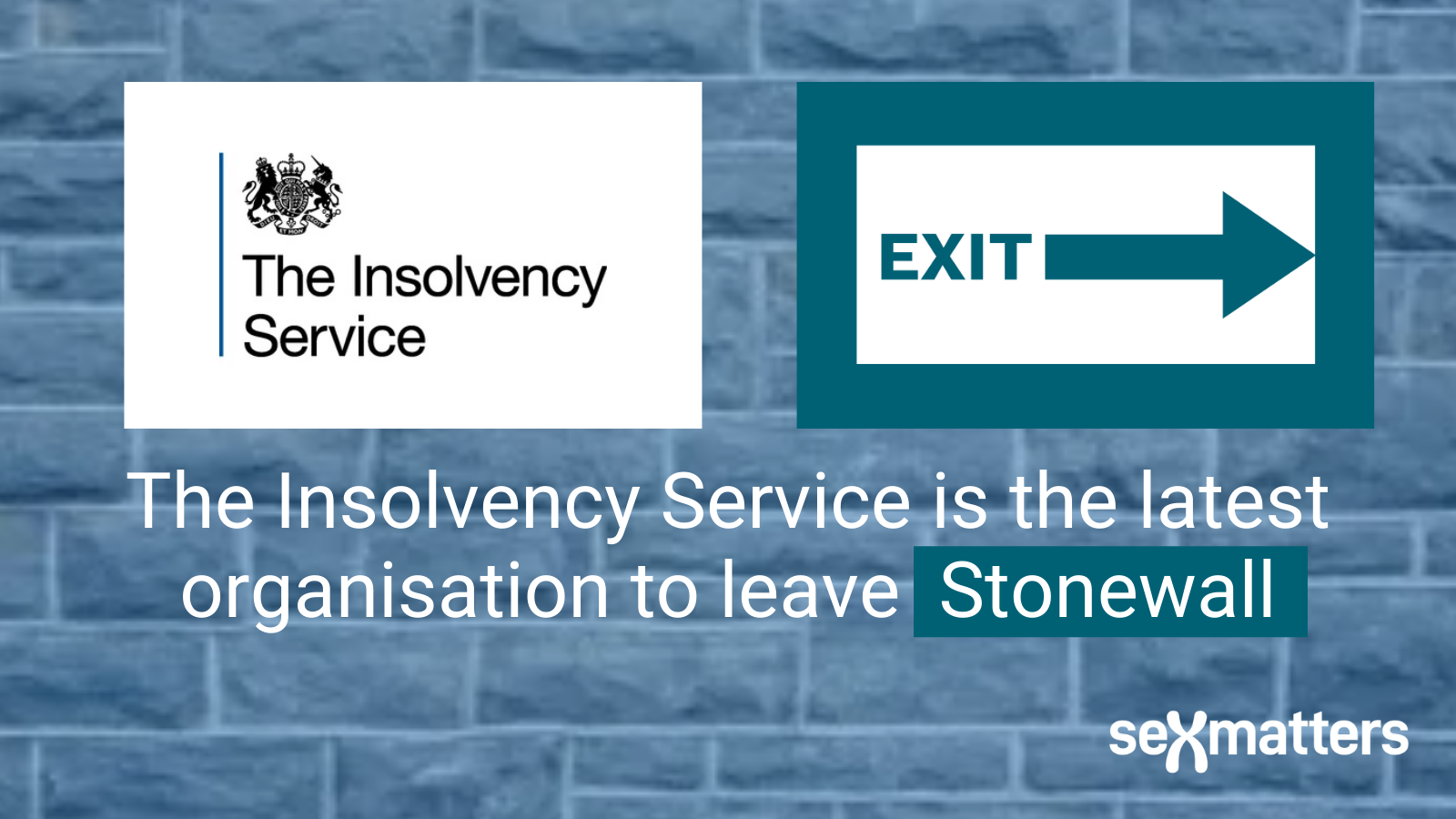Government organisation leaves Stonewall over concerns about impartiality and cost

The government’s Insolvency Service is the latest organisation to leave Stonewall, stating in its internal communications:
“Unfortunately, there are concerns around impartiality and upon review, we found that the contract did not represent value for money.”
The Insolvency Service joins a growing list of companies and organisations who have realised that membership of Stonewall creates risks. Many organisations are questioning whether outsourcing Equality, Diversity and Inclusion (EDI) policies to a lobby group is a good idea.
Moon Beever, a specialist insolvency law firm, left Stonewall in June 2021, referencing “disquiet about recent actions of Stonewall”.
UCL (University College London) announced its departure in December 2021, saying:
“A formal institutional commitment to Stonewall may have the effect of inhibiting academic work and discussion within UCL about sex and gender identity.”
Each of these organisations has been keen to stress that leaving Stonewall in no way detracts from its commitment to diversity and equality. Organisations can comply with the law and promote equality without membership of any scheme.
The Reindorf report showed that following Stonewall guidance, which is not in line with the Equality Act 2010, is dangerous for employers. Stonewall represents the law as it would like the law to be, not as it is. This can contribute to an environment of fear for staff that hold views about sex and gender that do not align with Stonewall’s.
Sex Matters is contacted frequently by employees, service users and customers expressing unease about Stonewall-influenced policies and initiatives. People are scared that their concerns, if shared, could lead to repercussions they could not afford: losing their jobs; being refused service; social ostracism. Some have faced disciplinary action simply for disagreeing with Stonewall’s beliefs about gender identity.
Stonewall is a lobbying group campaigning to change the law, not an impartial advice service helping to support inclusion. This week the Equality and Human Rights Commission (EHRC), Great Britain’s national equality body, which has an “A” status as a National Human Rights Institution from the United Nations, published a letter and a response to the government consultation on conversion therapy. These documents were clear in differentiating sex, sexual orientation and gender reassignment as separate protected characteristics, and in protecting everyone’s human rights.
Stonewall’s response was to publish a statement claiming that the EHRC had attacked trans equality and suggesting that it should lose its status as a National Human Rights Institution.
“Stonewall calls on the UN Office of the High Commissioner for Human Rights and the Global Alliance of National Human Rights Institutions to urgently review EHRC and ensure that trans people’s rights are effectively supported by this institution.”
Organisations that turn to Stonewall for advice on equality law and follow its prescriptions are paying for advice from an organisation advocating against Great Britain’s national equality body. The risks have never been clearer.
